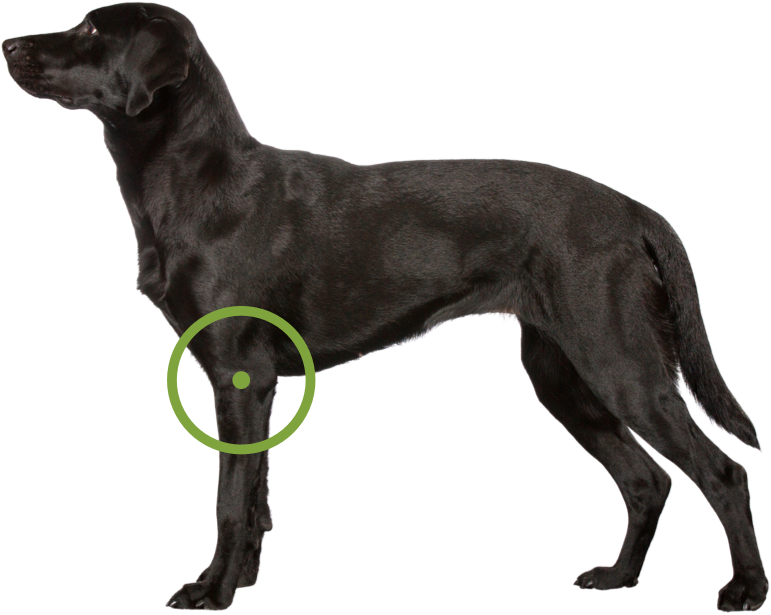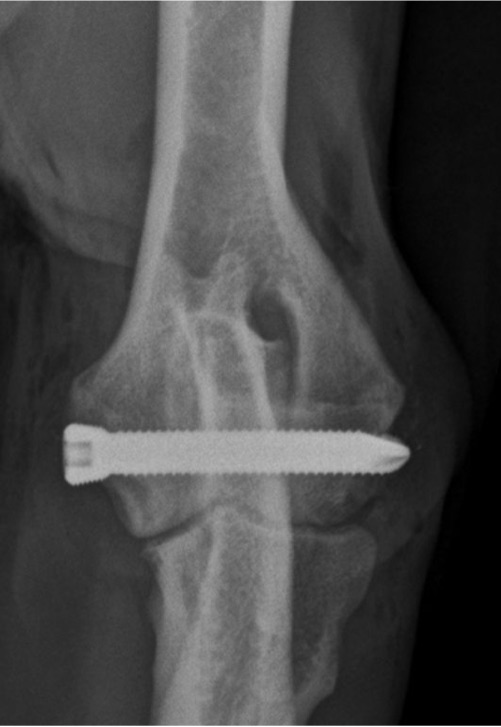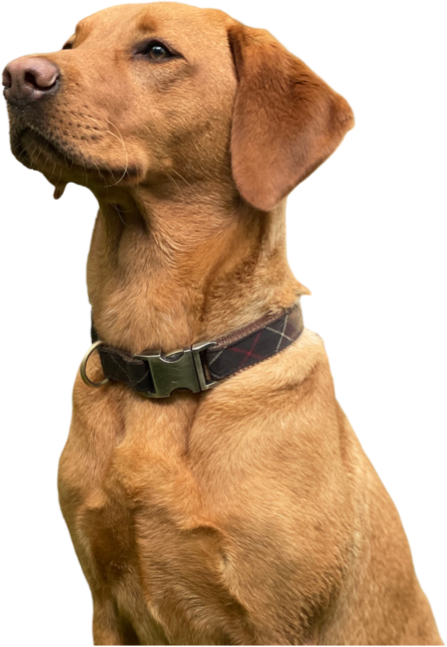What is elbow dysplasia?
Conditions that affect the elbow of growing dogs, leading to elbow osteoarthritis (OA)
Elbow dysplasia describes abnormal growth of your dog’s elbow joint during its development. There are several types of elbow dysplasia in dogs, but they can all result in lameness, cartilage damage and arthritis. The most common form of elbow dysplasia we see is called coronoid disease (often also referred to as medial compartment disease).
Elbow dysplasia is a very common cause of forelimb lameness. It often affects young dogs, however, lameness can also be late onset. The symptoms are most common after exercising or after lying down.

Why Moores Ortho?
Elbow arthroscopy in experienced hands is a very safe procedure (in inexperienced hands it can cause more damage to the joint). We have decades of experience in safely managing dogs with elbow dysplasia and have published research on this condition.
For your peace of mind our elbow arthroscopy prices are fixed-price and include the initial assessment and CT scan, post-surgery support from our team and a six week follow-up appointment. Furthermore we are so confident of our surgical success rates that we offer a surgical guarantee after elbow arthroscopy: in the unlikely event your dog suffers a complication after surgery we will manage this free-of-charge (T&Cs apply). We do not know of any other specialist centre in the south east that can match us on price and offers such a guarantee.
Single elbow: £4,000
Both elbows: £4,500
At the Moores Orthopaedic Clinic we can offer:
- Expert assessment of your pet to determine the correct treatment, including elbow CT scanning
- Specialist surgeons highly experienced in elbow arthroscopy (‘key hole’ surgery)
- If we do not think your pet will benefit from surgery then we will advise you of suitable non-surgical treatment strategies
- A purpose-built modern clinic with facilities designed to minimise the risk of complications after orthopaedic surgery
- Detailed aftercare instructions and support during recovery including discounted physiotherapy packages
- Personal and professional service
- Very competitive pricing and a surgical guarantee
What can you expect before and after surgery
At your initial appointment we will review your pet’s history and any x-rays, and thoroughly assess them. We will then be able to advise you on treatment options and costs.
We are very likely to perform a CT scan of your pet’s elbows to help us make a diagnosis and in some dogs we will advise an elbow arthroscopy (‘key-hole’ surgery).
After surgery, your pet will go home with a detailed postoperative care plan and any necessary medications.
Limitations in activity are essential, especially within the first few weeks. These will be detailed on the postoperative care plan. We will always be available for advice if you need us and we will encourage you to return to the clinic to check on your pet’s recovery and progress.
We will advise you of the prognosis for your pet based on the CT scan and arthroscopy findings. Elbow dysplasia results in a wide spectrum of disease. Most dogs are much better after elbow arthroscopy but some dogs will have persistent lameness or lameness that returns when they are older.

How we help dogs with elbow dysplasia
If your dog has elbow dysplasia then they will sadly never have a completely normal elbow. It is important to realise, however, that lots of dogs with elbow dysplasia do not have symptoms and can lead full and active lives. Non-surgical management, including medication, exercise modification, physical therapy and weight control can often help manage elbow dysplasia. However, many dogs with elbow dysplasia will have loose bone fragments or fissured (cracked) pieces of bone in their elbow. In such cases we may recommend fragment/fissure removal via arthroscopy. Most dogs, especially younger dogs, improve significantly after arthroscopy. Further options include injections into the joint -for example platelet-rich plasma and stem cells, both of which can help the symptoms of the arthritis secondary to elbow dysplasia.
FAQs
How much does it cost to treat elbow dysplasia in dogs?
Most dogs will need a CT scan before surgery. Also, arthroscopy requires a lot of expertise and experience, and expensive equipment, to be performed safely. The price for treatment reflects the specialist nature of this treatment. Our pricing however is very competitive compared to other centres. To help with your financial planning we charge a fixed-cost fee for elbow CT scanning and arthroscopy.
What are the recovery times from elbow dysplasia surgery?
Elbow arthroscopy is a day procedure. It is very rare that a dog is not walking on their operated leg when they are discharged home the same day as surgery. Your pet will need to be restricted after surgery to maximise their recovery. For the first few weeks we will advise little more than toilet walks only, but after this period gradually increasing lead walks are started. Running, jumping and stairs must be avoided. Most dogs are starting off-lead activity from 12 weeks after surgery
Will my pet need physiotherapy?
We recommend physiotherapy after surgery and work closely with our neighbours, Burnside Rehabilitation. If you are not local to us we can guide you towards a physiotherapist close to home
What are the outcomes of elbow dysplasia surgery?
Most dogs will have a much better quality of life after surgery, but some may still suffer from stiffness and lameness. Over the longer-term, in some dogs, lameness will return as a result of worsening elbow arthritis, despite surgery.
Can elbow dysplasia be fixed?
This is a manageable, but not curable problem. With the right support from our specialists, you can help your dog live a happier, more comfortable life.
What causes elbow dysplasia?
This condition is generally considered genetic, however, some other factors can also contribute, such as obesity and injuries when growing
What happens if you don’t treat elbow dysplasia in dogs?
Not every dog with elbow dysplasia needs surgery, and some dogs will improve with non-surgical management (i.e. rest, medication, physical therapy). For those dogs that do not improve with this approach surgery may be an option.
Will my dog’s elbow dysplasia surgery be covered by my insurance?
Almost certainly yes, but do check your policy carefully in case there are any exclusions or limits on cover. If your pet has previously been treated for an elbow problem (in either elbow) and you have since changed insurance companies, then you may not be covered. If you are unsure about your level of cover then please let us know and we can investigate this for you.
Make an enquiry
Request more
information



